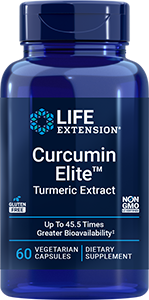
Newsletter
Newsletter
Meta-analysis adds evidence to chromium supplementation’s glucose control benefits in diabetics

August 25, 2020
A systematic review and meta-analysis published on July 27, 2020 in Pharmacological Research found reductions in fasting plasma glucose, insulin, hemoglobin A1c (HbA1c, a marker of long term glucose control) and insulin resistance in men and women with type 2 diabetes who supplemented with the mineral chromium.
For their analysis, Omid Asbaghi of Lorestan University of Medical Sciences and colleagues selected 23 randomized, controlled trials that evaluated the effects of supplementing with chromium on various glycemic control indexes. Doses used in the studies ranged between 50 micrograms (mcg) and 1,000 mcg per day consumed from four to 25 weeks. Eleven of the trials evaluated a chromium dosage within a 400 to 600 mcg range.
Analysis of 22 trials that reported fasting plasma glucose levels concluded that chromium supplementation was associated with an average reduction of 19.0 milligrams per deciliter (mg/dL) in comparison with the placebo. Trials of at least 12 weeks duration were associated with a far greater average decrease of 58.74 mg/dL in association with chromium.
Of the 14 trials that reported insulin levels, levels declined by an average of 1.7784 µIU/mL among subjects who received chromium compared to the placebo, with trials that lasted 12 weeks or longer associated with a decrease of 3.47 µIU/mL.
For the 22 trials that reported HbA1c, supplementation with chromium was associated with an average decrease of 0.71%, which improved to a significant 1.70% reduction when trials of 12 weeks duration or more were examined. Homeostatic model assessment for insulin resistance (HOMA-IR) also decreased significantly among participants who received chromium.
The authors observed that chromium plays a role in carbohydrate and lipid metabolism and may enhance insulin sensitivity. Other nutrients that have been associated with a lower risk of type 2 diabetes include vitamins A, C, D and E, beta-carotene, calcium, magnesium, potassium and zinc.
“Present systematic review and meta-analysis of all available published randomized trials up to 2020 found a significant reduction in all glycemic control indices such as fasting plasma glucose, insulin, HbA1c and HOMA-IR levels after chromium supplementation,” they wrote. “Furthermore, long term intervention contributed to greater reduction of all mentioned indices.”
“The results of the current meta‐analysis study might support the use of chromium supplementation for the improvement of glycemic control indices in T2DM patients,” they concluded.
Products
Apply What You’ve Learned: Chromium
-
Chromium is known as a trace element in nutrition, meaning that the body utilizes only trace amounts. However, the nutritionally depleted foods grown and consumed during modern times can be lacking in even low levels of these nutrients. In fact, most foods provide less than 2 micrograms chromium per serving.1
-
While vitamin C and the B vitamin niacin enhance chromium absorption, several medications, including antacids, corticosteroids, H2 blockers and proton pump inhibitors can the impair the absorption of chromium or increase its excretion.1
-
In addition to supporting glucose control, chromium may also help support healthy lipid levels.2
-
Chromium supplementation was associated with a 21.8% increase in average life span and a 22% extension of maximum life span compared to controls in research involving mice.2
References
- “Chromium.” National Institutes of Health Office of Dietary Supplements, Updated 27 Feb 2020, https://ods.od.nih.gov/factsheets/Chromium-HealthProfessional/
- Huang H et al. Mol Nutr Food Res. 2018 Jan;62(1).
- Preuss HG et al. J Inorg Biochem. 2011 Oct;105(10):1344-9.
Featured Life Extension Magazine® Article
Suppress Toxic Senescent Cell Secretions
by Jason Fitzgerald
An increasing burden of senescent cells occurs in our bodies as we grow older.
What are senescent cells?
Senescent cells are aged cells that lose healthy functionality. Rather than dying and undergoing removal from the body, senescent cells remain to secrete toxic enzymes that degrade proteins, resulting in cellular destruction and chronic inflammation.
The unhealthy phenomenon does not have to be an inevitable part of aging. Plant compounds that include theaflavins from black tea and the flavonoid quercetin (which occurs in many commonly consumed foods) can help decrease the number of senescent cells. Apigenin, another flavonoid, found in celery, parsley and some herbs, can reduce the secretion of the cells’ proinflammatory compounds.
Energy Management Supplement Guide
By answering a few simple questions, we will help you choose the energy health supplements that are right for you.
What's Hot
Health Concern
High dose vitamin D could slow diabetes progression
An article published on July 25, 2019 in the European Journal of Endocrinology documents an association between vitamin D supplementation among newly diagnosed type 2 diabetics or those at risk of diabetes and a reduction in the progression of the disease.
Diabetes and Glucose Control
Diabetes mellitus is characterized by high levels of glucose in the blood. Type 2 diabetes is far more common than type 1 diabetes and is mainly caused by resistance to the effects of the hormone insulin, which facilitates removal of glucose from the blood.
Related Life Extension Magazine® Articles
Life Extension Magazine® Issue Now Online
A remarkable number of healthy-longevity findings have been published over the past 18 months.
Moving? Need to update your address?
If you currently receive Life Extension® Magazine and your address has changed, please let us know. Simply call 1-800-678-8989, and we'll gladly update your information in our systems. Or login to your account on LifeExtension.com.
AMPK Metabolic Activator (item #02207):
This supplement should be taken in conjunction with a healthy diet and regular exercise program. Individual results are not guaranteed, and results may vary.









